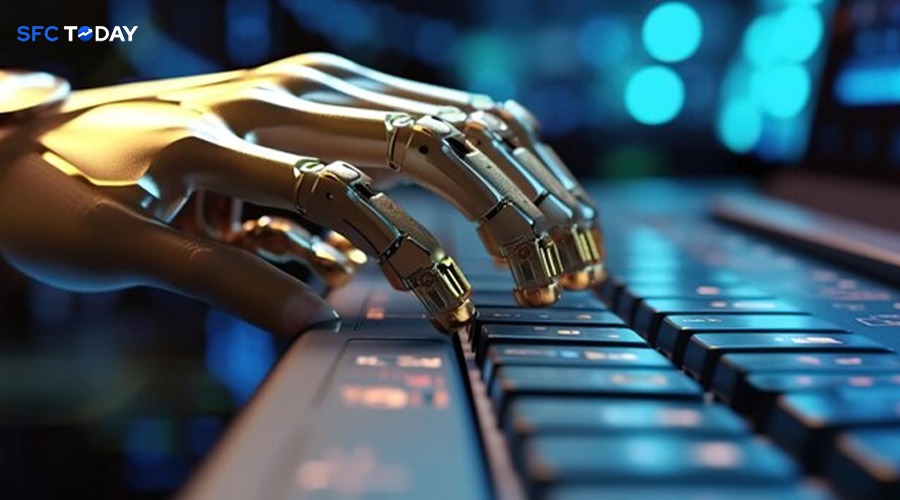Blockchain gatekeeping: Redefining AI regulation for accountability and innovation
The rapid advancements in artificial intelligence (AI) present a future brimming with potential, but also raise concerns about the need for regulation. Blockchain technology, known for its security and decentralization, offers a promising solution. “Blockchain as a Gatekeeper: Revolutionizing AI Regulation” explores the symbiotic relationship between blockchain and AI governance, aiming to balance innovation with accountability. By leveraging blockchain’s immutable ledgers and transparent operations, this marriage could redefine AI regulation and set new standards for responsible development.
Blockchain’s application in AI regulation revolves around its inherent features like, decentralization, transparency, and immutability. It can issue digital licenses for AI systems, regulate AI activities through smart contracts, ensure traceability and accountability, and adapt regulations as AI evolves. This approach enhances security, transparency, and efficiency while enabling flexible governance.
The integration of blockchain into AI regulation offers several benefits. It enhances security by safeguarding AI systems and operational data from tampering and unauthorized access. Transparency and trust are fostered through blockchain’s transparent nature, allowing stakeholders to verify compliance with ethical standards. Decentralized control mitigates the risk of power concentration and promotes a democratic AI landscape. Automated compliance streamlines regulatory processes, making them more efficient and less prone to error. Additionally, adaptability ensures that regulations keep pace with technological advancements.
While promising, this integration poses challenges. Technical complexities, governance issues, limitations of blockchain technology, and jurisdictional challenges must be addressed. Integration with existing systems, scalability, and energy consumption are technical hurdles. Governance and standardization issues, regulatory uncertainty, and data privacy concerns require attention. Global enforcement and jurisdictional challenges complicate international cooperation.
Real-world case studies demonstrate blockchain and AI integration’s potential across various sectors, from finance and healthcare to supply chain management and smart cities. However, challenges such as technical hurdles and policy implications must be addressed. The future of AI and blockchain integration entails advanced techniques, enhanced security measures, improved scalability solutions, decentralized AI models, and global standards and regulations.
International cooperation is crucial for standardizing regulations, avoiding regulatory arbitrage, fostering innovation, and addressing the digital divide. International bodies play a vital role in setting global standards, facilitating dialogue, promoting ethical guidelines, and ensuring a harmonized regulatory landscape. Policymakers must balance innovation with control and address economic, political, and implementation challenges.
Achieving a balance between innovation and control in AI regulation requires collaboration and dialogue among stakeholders. Technologists, policymakers, the public, and researchers must actively engage in shaping regulations that foster innovation, ensure ethical compliance, and align with societal values. Integrating blockchain in AI regulation is a societal imperative, demanding a multidisciplinary approach and collective effort to advance technologically and ethically.

